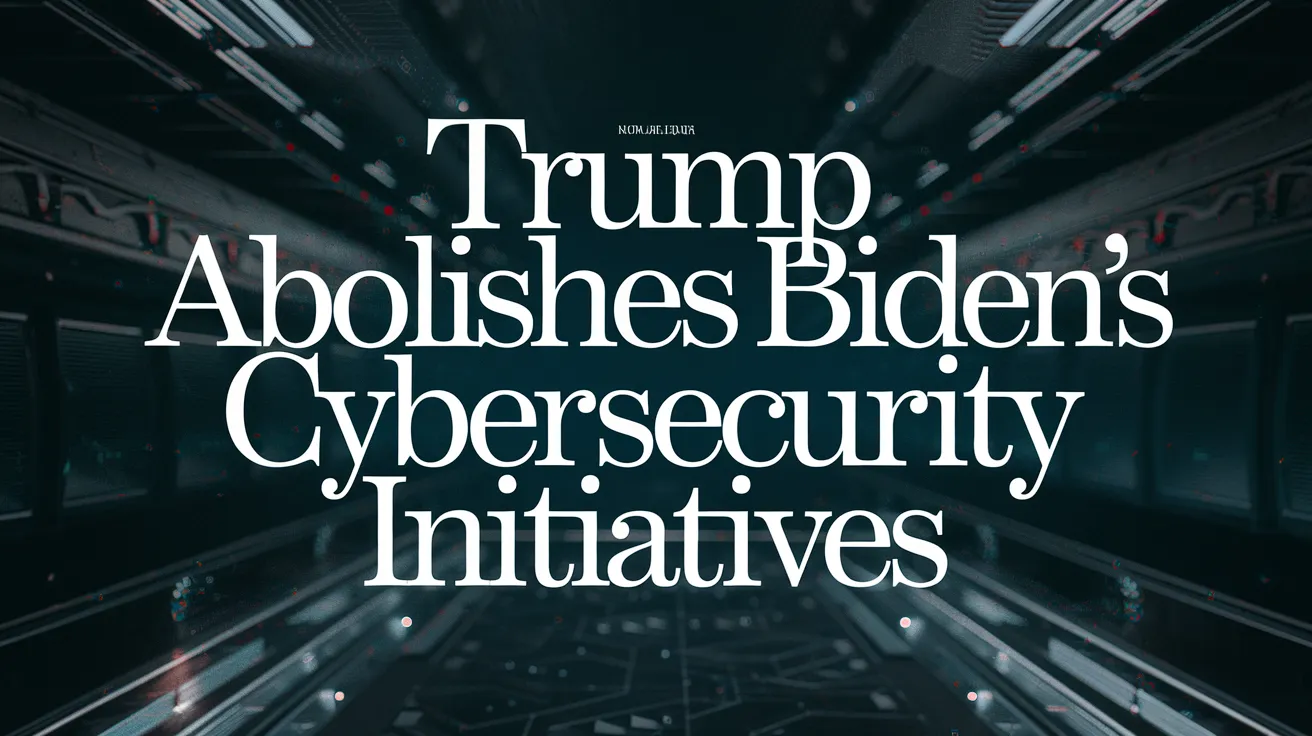Trump Abolishes Biden’s Cybersecurity Initiatives

On June 6, 2025, President Donald Trump signed a controversial executive order that revoked or modified several significant cybersecurity initiatives from the Biden administration. The White House criticized Biden’s previous efforts as problematic distractions, seeking to realign the country’s cybersecurity policies under Trump’s vision.
The executive order eliminated projects aimed at enhancing software security, advancing artificial intelligence in cybersecurity defenses, and adopting encryption methods that could withstand the future capabilities of quantum computers. These initiatives were intended to enforce stricter compliance from software vendors regarding federal security standards.
In a statement addressing the changes, the White House asserted that Trump’s administration is committed to making America cybersafe, promising a focus on technical and organizational proficiency to bolster the security of information systems nationwide.
The decision to revoke Biden’s initiatives marks a significant shift in government cyber regulation strategy following years of serious cyberattacks attributed to insecure software practices. Under Biden, the administration aimed to improve private sector compliance through federal procurement power, initiating this effort with a cybersecurity order in 2021. Trump’s administration, however, condemned these moving parts as burdensome and unproven, arguing instead for investments that prioritize genuine security over mere compliance.
Among the eliminated provisions was the requirement for federal contractors to submit ‘secure software development attestations’ and the obligation for the Cybersecurity and Infrastructure Security Agency (CISA) to verify such attestations. Trump’s order also cut provisions that intended to establish minimum cybersecurity practices guided by acknowledged global standards.
In matters involving AI, Trump scrapped Biden’s plans to leverage AI in strengthening cyber defense mechanisms, specifically within critical infrastructure sectors like energy. The previous administration had aimed for substantial governmental research into AI’s ability to reinforce security against cyber threats, an area that now faces diminishment under Trump’s decree.
Similarly, Biden’s initiatives to advance the implementation of post-quantum cryptography have been curtailed. Trump’s order dismissed requirements for federal agencies to adopt quantum-resistant encryption actively and halted efforts to promote these protocols among key foreign allies.
Amidst the changes, Trump maintained a significant Biden-era project from the Federal Communications Commission (FCC), which aims to apply security testing seals to technology products. This particular initiative is set to ensure that companies providing Internet of Things (IoT) devices to the federal government undergo robust security assessments by accredited labs before 2027.
These sweeping adjustments highlight the contentious and ongoing battle over cybersecurity policy in the U.S., revealing the profound impact leadership changes can have on technological advancements and regulatory approaches. The broader implications of these actions remain to be seen, particularly as the landscape of cyber threats continues to evolve rapidly.